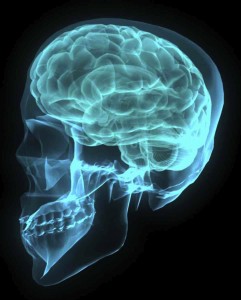In the not-so-distant past, it’s likely that many people didn’t know how schizophrenia might develop, and what might be done about the condition once it began. Now, many people seem to know a great deal about this very persistent mental illness. For example, in a study conducted by the National Alliance on Mental Illness, 85 percent of people recognized that schizophrenia is an illness, and 79 percent knew that people with the disorder could go on to lead independent lives, as long as they had access to care. Unfortunately, there are many things people have yet to learn about this disorder. For example, in this same study, only 24 percent of people know that drug abuse was considered a symptom of schizophrenia. That’s a shame, as this lack of knowledge could lead to unnecessary pain and suffering for people with this mental illness, as they might be blamed for their substance use, rather than approached with understanding.
Table of Contents
A Common Condition
 Substance abuse is considered a symptom of schizophrenia because it’s just so remarkably common. In fact, according to an article in The Harvard Mental Health Letter, about half of people who have schizophrenia also have a history of some kind of substance abuse or substance dependence. This means that the rates of substance abuse in people with schizophrenia are three times higher than the rates seen within the general population. Researchers have spent a significant amount of time trying to determine why the two conditions merge so frequently, and while those reasons might differ from person to person, there are some universal underpinnings that might be at play in almost anyone.
Substance abuse is considered a symptom of schizophrenia because it’s just so remarkably common. In fact, according to an article in The Harvard Mental Health Letter, about half of people who have schizophrenia also have a history of some kind of substance abuse or substance dependence. This means that the rates of substance abuse in people with schizophrenia are three times higher than the rates seen within the general population. Researchers have spent a significant amount of time trying to determine why the two conditions merge so frequently, and while those reasons might differ from person to person, there are some universal underpinnings that might be at play in almost anyone.
For example, people with schizophrenia are sometimes exposed to a significant amount of stress. They may have:
- Low levels of education
- Lack of employment
- Low amounts of social support
- Reduced income levels
Their day-to-day lives may be filled with struggle and worry, and these are the sorts of emotional states that are common in almost anyone who has an addiction. Drugs seem to provide a sensation of relief and a feeling of escape, and this might be attractive to people with schizophrenia.
People with schizophrenia also have deficiencies in the areas of the brain that process and create the neurotransmitter dopamine. In part, this deficiency is responsible for the symptoms they feel, and sometimes, abusive drugs seem to provide relief. These substances also work on dopamine production and dopamine uptake, and they can make people with schizophrenia feel just a little bit better. People who experience the benefits of drugs like this might be tempted to use the substances each day, each time they feel low, and an addiction might quickly follow this compulsive use.
Some research also suggests that people with schizophrenic tendencies are tempted to abuse drugs, where others might not face the same level of temptation. For example, in a study in the journal Archives of General Psychiatry, researchers found that people who had schizophrenic hallucinations early in life were more likely to have smoked or used marijuana longer. It’s possible that the drug use caused the hallucinations, but it’s also possible that these young people were drawn to marijuana as they looked for ways to calm their hallucinations. They were looking for solutions to their mental illness, and got more problems instead.
Serious Consequences
 While it’s somewhat easy to understand why people with schizophrenia would turn to drugs, it’s not something that should be encouraged, as people who mix addiction with their mental illness could face very serious problems as a result. For example, a study in The British Journal of Psychiatry found that 68 percent of people with schizophrenia used marijuana or another type of similar drug. As mentioned, these people were likely trying to soothe their minds and make their lives a little easier to live. Unfortunately, these same drugs could make symptoms of schizophrenia all the more difficult to control. Drugs could trigger a hallucination, or make an existing hallucination more intense. Drugs could also make people paranoid and anxious, and this could also trigger a hallucination.
While it’s somewhat easy to understand why people with schizophrenia would turn to drugs, it’s not something that should be encouraged, as people who mix addiction with their mental illness could face very serious problems as a result. For example, a study in The British Journal of Psychiatry found that 68 percent of people with schizophrenia used marijuana or another type of similar drug. As mentioned, these people were likely trying to soothe their minds and make their lives a little easier to live. Unfortunately, these same drugs could make symptoms of schizophrenia all the more difficult to control. Drugs could trigger a hallucination, or make an existing hallucination more intense. Drugs could also make people paranoid and anxious, and this could also trigger a hallucination.
There’s also evidence that suggests that some of the most serious consequences attributed to schizophrenia should more aptly be blamed on addiction. For example, people who know little about schizophrenia often claim that the disorder is associated with uncontrollable violence, including random acts of violence. Researchers writing for the journal PLoS Medicine examined this issue and found that schizophrenia was associated with violence, but only when substance use was also involved. Further, the rates of violence found in people with drug addictions and schizophrenia were no stronger than the rates of violence in people with drug addictions and no schizophrenia. In other words, the mental illness isn’t associated with violence. The drug abuse holds that association.
In some families, the drug addiction becomes the focal issue, and the family works hard to ensure that the person doesn’t have access to addictive substances. The schizophrenia is still in place, however, and it works as a powerful trigger for drug use. The person still feels the need for relief, and drugs may seem like a good solution. The person might relapse as a result, and the family might be torn apart by their failed attempt to make the person change. Some families never do see that the person in need has schizophrenia, and they continue to blame the person for his/her choices.
Treatment Helps
While schizophrenia mixed with substance abuse can be serious, and people with these two conditions might struggle more than people who have only one of these two issues, treatment really can make a huge difference. For example, in a study in the American Journal of Psychiatry, researchers found that drug-abusing people with schizophrenia had a lower amount of symptoms when their treatment programs were complete, when they were compared to people with schizophrenia who didn’t abuse drugs. With the right kind of treatment program, people can come to a deeper understanding of their issues, and they really can take control. In order to make these gains, however, people need to enroll in the right kind of treatment program.
Dual diagnosis programs are designed to help people who have both a mental illness and an addiction. Rather than treating one condition first and then addressing the other later, both issues are the focus of each and every intervention provided, including the person’s:
- Individual therapy sessions
- Medication management regimen
- Group therapy participation
- Support group work
This is the kind of program that can provide intense help to people with both schizophrenia and substance abuse, and this is the kind of help we provide at Axis. Our residential care can surround the person in need with help and support, and our affordable pricing ensures that people who need help can get it. If you’d like to find out more, please call us.
